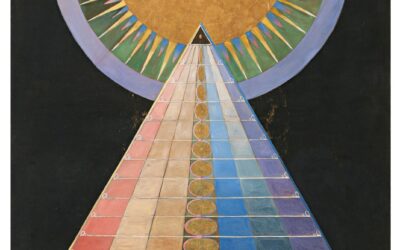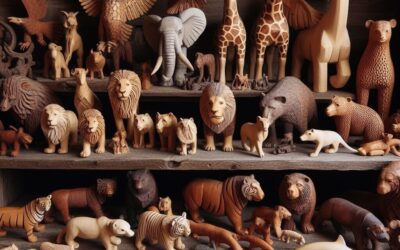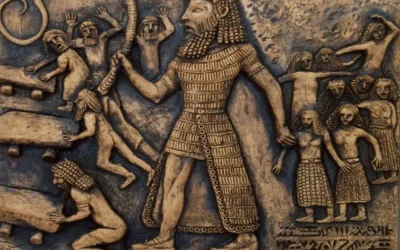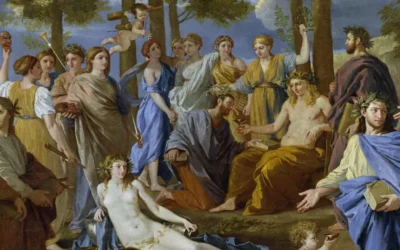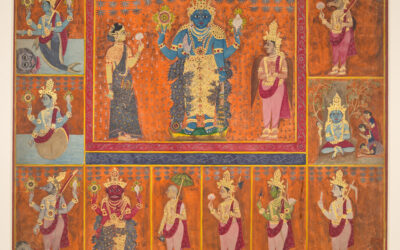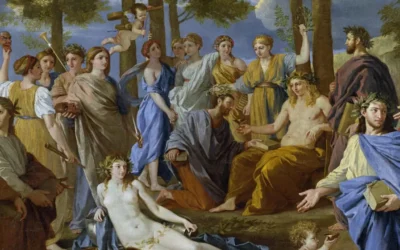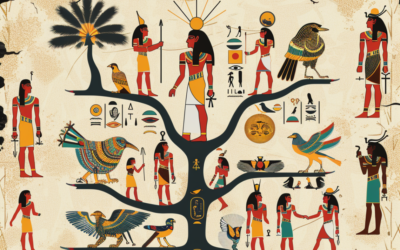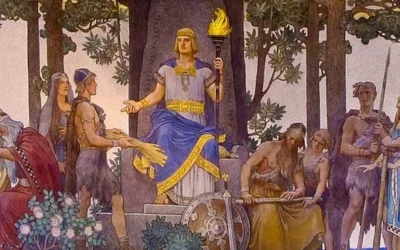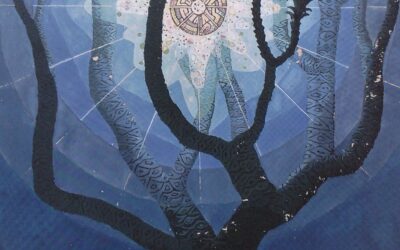Hilma af Klint: A Visionary Artist Who Pioneered Abstract Art Hilma af Klint (1862-1944) was a Swedish artist and mystic whose pioneering abstract paintings predated the work of Vasily Kandinsky and other modernist artists by several years. Born in Stockholm, af Klint studied at the Royal Academy of Fine Arts, where she developed her skills in traditional painting and portraiture. However, her true artistic breakthrough came after she embraced spirituality and began exploring the unseen realms of existence...
How do Animals Show Up In Dreams Through Archetypes?
The Enduring Imprint of the Natural World on the Human Psyche Throughout human history, our relationship with the natural world has shaped our evolution, not only in terms of physical adaptation but also in the realm of the psyche. One of the most profound ways in which this connection manifests is through our relationship with and identification with animals. These creatures, both real and mythological, have long been woven into the fabric of our dreams, stories, and unconscious minds, serving as powerful...
The Yin and Yang of Culture: Navigating Order and Chaos
What is the Left Hand Path and Right Hand Path? I. In her haunting short story "The Lottery", Shirley Jackson paints a disturbing portrait of a quaint village where residents gather on a sunny summer morning to enact a brutal annual tradition - the random selection and stoning of a community member. Jackson's allegorical tale serves as a potent reminder of the perils of unthinkingly adhering to tradition and the vital necessity of critically examining cultural norms. Viewed through the lens of Jungian psychology...
The Epic of Gilgamesh: A Depth Psychological Reading
How to Understand The Epic of Gilgamesh What is the Epic of Gilgamesh The Epic of Gilgamesh is one of the oldest surviving works of literature, dated to around 2100 BCE. This Sumerian epic poem tells the story of Gilgamesh, the hero-king of Uruk, and his adventures with his wild-man companion Enkidu. On the surface, it is a tale of heroic exploits, friendship, loss, the search for immortality, and the acceptance of death. Yet when viewed through the lens of depth psychology, the Epic of Gilgamesh can be seen as a...
The Pantheon: Myths are Public Dreams, Dreams are Private Myths
"Myths are public dreams, dreams are private myths. By finding your own dream and following it through, it will lead you to the myth-world in which you live. But just as in dream, the subject and object, though they seem to be separate, are really the same." Joseph Campbell Why do they use Mythology in Therapy? Mythology has long been a source of fascination for people around the world. These ancient stories, filled with gods, heroes, and fantastical creatures, have captured the imagination of generations....
Hindu Mythology: As Parts of Self
Hindu Mythology: A Tapestry of Divine Multiplicity and the Nature of Self Chapter 11, Verses 30-33: 30. "I am time, the great destroyer of the worlds, and I have come here to destroy all people. With the exception of you [the Pandavas], all the soldiers here on both sides will be slain. 31. Therefore, you should perform your duty in battle. I have already determined that these soldiers will die. Do not be disturbed by this. 32. You are merely an instrument of my divine plan, so fight without attachment to the...
Greek Mythology: The Gods of Change, Cyclical Order, and Human Experience
Why do they Use Greek Myths in Therapy? Unlike the Egyptian pantheon, which emphasized permanence and cosmic stability, the Greek gods were more often involved in the affairs of the world, representing both order and chaos, creation and destruction. Their myths explored the tensions between fate and free will, the rise and fall of empires, and the cycles of life, death, and rebirth. Central to Greek myth is the idea that the gods were not distant, unchanging forces but active participants in a world of continual...
Egyptian Mythology: Gods, Dynasties, and the Eternal Empire
Exploring Permanence in Egyptian Mythology Egyptian architecture with its bold forms and slow lines is still associated and used to envoke power and formalism through structure. Egyptian mythology, like the civilization that produced it, is steeped in notions of permanence, eternity, and cosmic order. This focus on permanence is understandable when one considers Egypt’s geographical and political context: a kingdom bound to the cyclical flooding of the Nile, subject to occasional famine or drought, and ruled by...
Norse Mythology and the Self
A Jungian Perspective on Norse Pantheon Archetypes in Therapy In the deep frost of Scandinavian myth, the Norse pantheon emerges not only as a constellation of divine beings but as a reflection of the human psyche. Unlike the rigidly idealized gods of Greek and Egyptian myth, the gods of Norse mythology seem to struggle with the same chaotic, inevitable forces that shape the human condition. These figures—Odin, Thor, Freyja, Loki, and others—are not merely external representations of power or virtue but...
From Analytical to Experiential: The Transformation of Post-Jungian Psychotherapy
What Happened to Jungian Therapy After Jung Died? Carl Gustav Jung, the founder of analytical psychology, left an indelible mark on the field of psychotherapy. His groundbreaking ideas about the collective unconscious, archetypes, and the individuation process have influenced generations of therapists and continue to shape our understanding of the human psyche. However, in the years following Jung's death in 1961, the landscape of Jungian psychotherapy began to shift in ways that some argue strayed from the core...

